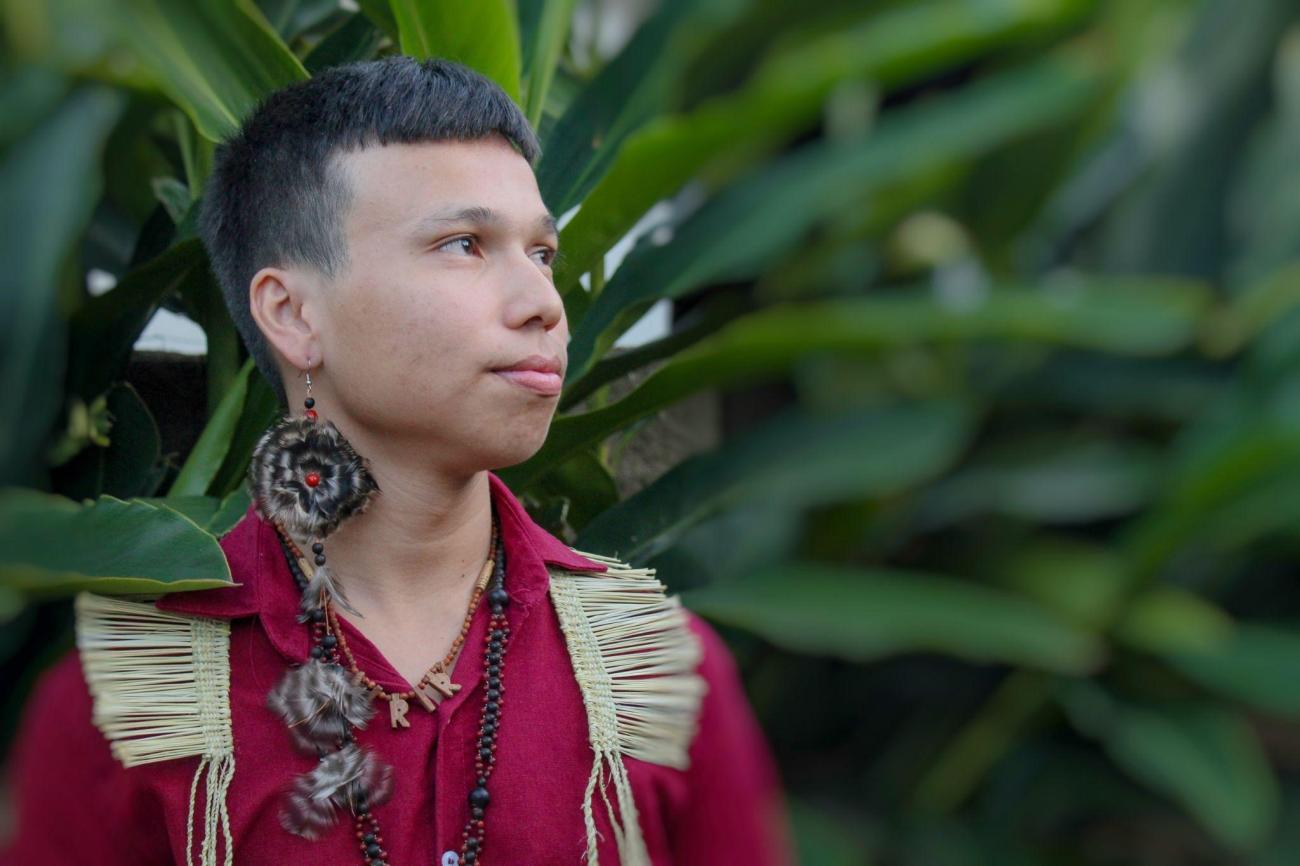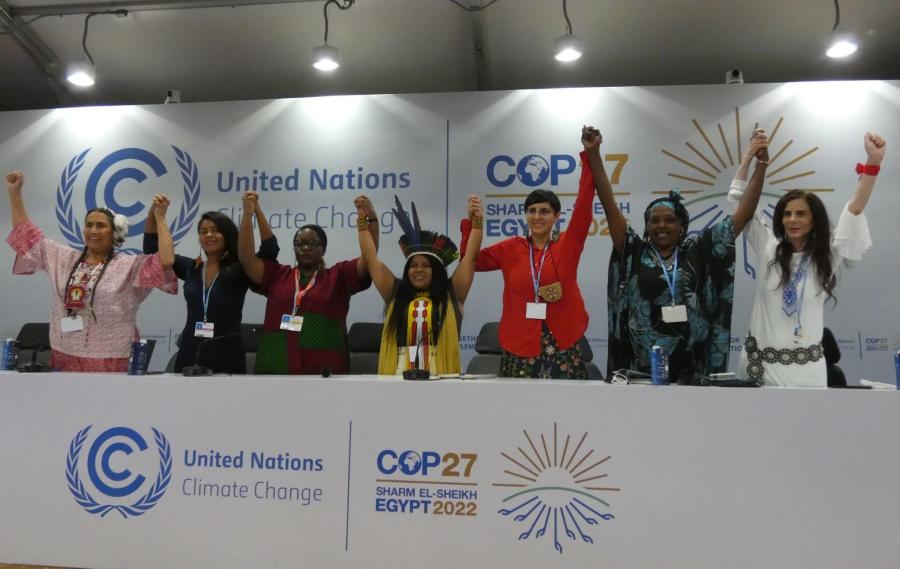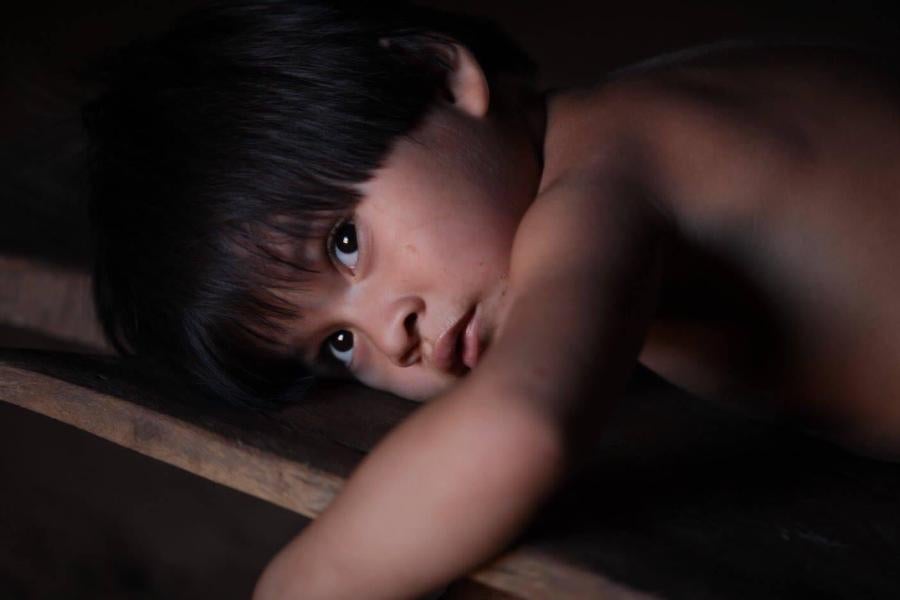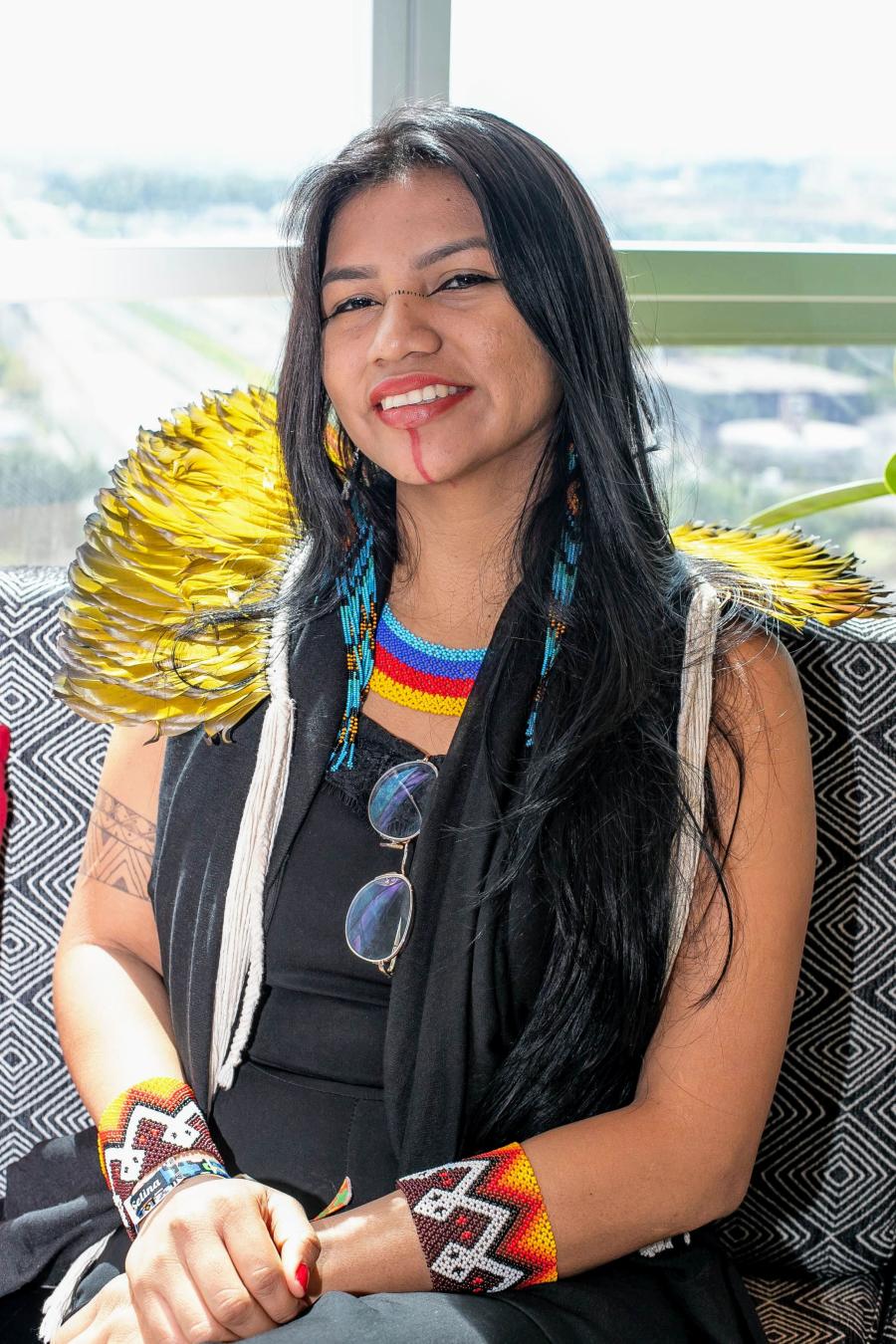
Washington Kiriri (Kiriri) is an Anthropology student at the Federal University of Southern Bahia in Brazil. He aspires to end the objectification of Indigenous people as anthropological case studies and to create new opportunities for Indigenous people to tell their stories. He is also part of the United Movement of Peoples and Organizations of Bahia, which seeks to guarantee Indigenous territorial rights, women's rights, 2SLGBTQ+ rights, and climate justice. Kiriri offers a reflection on his experience as a bisexual person in Brazil.
I feel more and more empowered to share my experience as an Indigenous LGBTQIA+ person because I know how it can positively affect other Indigenous people. Communication is a very important tool for Indigenous Peoples. The internet has made it possible for agendas that previously did not have space in traditional media to gain visibility through Indigenous protagonists. It is through communication that I act politically. I use this tool to deconstruct the conceptions and stereotypes produced by the colonizers, which persist in Brazilian society. I also express myself so that other Indigenous LGBTQIA+ people can be proud of who they are.
Since I was a child, I realized that I was different from the others. But it was only in adolescence, at the age of 16, that I began to understand my sexuality better; that I was not just attracted to girls like the other boys. I grew up within the territory of my people, which is located in the northeastern part of the state of Bahia. When I came out to my family it was not easy. For some years I didn't speak to some of my family members, but today I can say that I am respected and welcomed.
I was not the first LGBTQIA+ person to come out within my people. In recent history, a slightly older cousin of mine paved the way for me and other Indigenous people to have the courage to come out of the closet. This trajectory has strengthened me enough so that I am not ashamed or afraid to live my sexuality fully.
Most LGBTQIA+ rights in Brazil were won in the last two decades. It wasn’t until 1985 that homosexuality was removed from the Federal Medical Council's list of diseases, five years before the World Health Organization also removed it from the list of psychiatric disorders.
In 2002, the Federal Council of Medicine only allowed the sexual reassignment procedure for Trans women. It wasn’t allowed for Trans men until 2010. The Supreme Court approved the legalization of same-sex marriage in 2011, and in 2013, the National Council of Justice approved a resolution that obliged notaries to perform same-sex civil marriages.
Although the use of the term “Trans” was accepted in 2016, Transgender people still had to carry documents that were not compatible with their [gender] identity. Only in 2018, did the Supreme Court authorize Trans people to legally change their name, regardless of whether they have undergone gender-affirming surgery.

Discrimination based on sexual orientation and gender identity was outlawed in 2019, and is now punishable under the Racism Law (Law No. 7,716 of 1989), which provides for crimes of discrimination or prejudice based on "race, color, ethnicity, religion, and national origin."
Smear campaigns against the LGBTQIA+ community produced by the mainstream media portrayed LGBTQIA+ people as the cause of the spread of the HIV virus, and consequently, blood donations were banned. This restriction was overturned in 2020.
In 2023, for the first time in the structure of the federal government, the National Secretariat for the Promotion and Defense of the Rights of LGBTQIA+ People was created under the Ministry of Human Rights. Whereas the actions of the Judiciary branch have promoted the recognition of the rights of LGBTQIA+ people, the Legislative branch has remained silent in response to the demands of this population.
In Brazil, our fight is for survival. We still have a long way to go to guarantee our rights and stop being one of the countries that kills the most LGBTQIA+ people in the world. Among the Indigenous Peoples in Brazil there has always been an enormous diversity of gender and sexuality. There are many words in Indigenous languages to refer to those people we now understand as LGBTQIA+: Tibira and Çacoaimbeguira in Tupi-Guarani; Biakara and Aredu/imedu in Bororo; Kyrypy-meno in Guarani-Mbyá; Kudina in Guaikurú; Hawakyni in Karajá. These are just a few examples, demonstrating that there are multiple possibilities for understanding sex and gender in Indigenous cultures
It is no exaggeration to say that discrimination and violence against LGBTQIA+ people came from the caravels. For in the cosmovision of the original Peoples, sexual and gender plurality was not a problem. It is only with the European invasion that Indigenous people dissenting from cis-heteronormativity are persecuted and discriminated against. The colonizers' violence was not only on the dissident bodies of our ancestors, but also on our collective memory.
The colonization process produced a conception that naturally associates Indigenous bodies as cisgender and heterosexual. This colonial fiction can cause many of us Indigenous LGBTQIA+ people to feel a sense of not belonging and psychic suffering. Reviving the stories of our ancestors is fundamental for LGBTQIA+ Indigenous people to have pride and be able to perceive cis-heterosexuality as a power structure that places us in a subordinate condition, no longer as something natural.
The Brazilian State needs to urgently create measures to end violence against LGBTQIA+ people, since every 34 hours a person from the community is murdered and for fourteen consecutive years we are the country that murders the most transgender people in the world. This violence against the bodies of LGBTQIA+ people has its origins in colonization, which not only expropriated and exploited Indigenous lands, but also sought the domination of our bodies, affection and subjectivity, forcing Indigenous Peoples to adapt to cis-heteronormativity.
The struggle against LGBTQIA+phobia also needs to be the struggle in defense of the territorial rights of Indigenous Peoples. There is no fair and equal society without free bodies and without demarcation of ancestral territories. Indigenous people who are LGBTQIA+ are often seen as less Indigenous, even within their own communities. We need to remind our relatives that the damaging and devastating customs and traditions of violence against people who experience love differently are not ours. LGBTphobia came on the caravels. Our Peoples have a millenia-long history of respecting diversity. We must be proud to be who we are to honor our ancestors.



